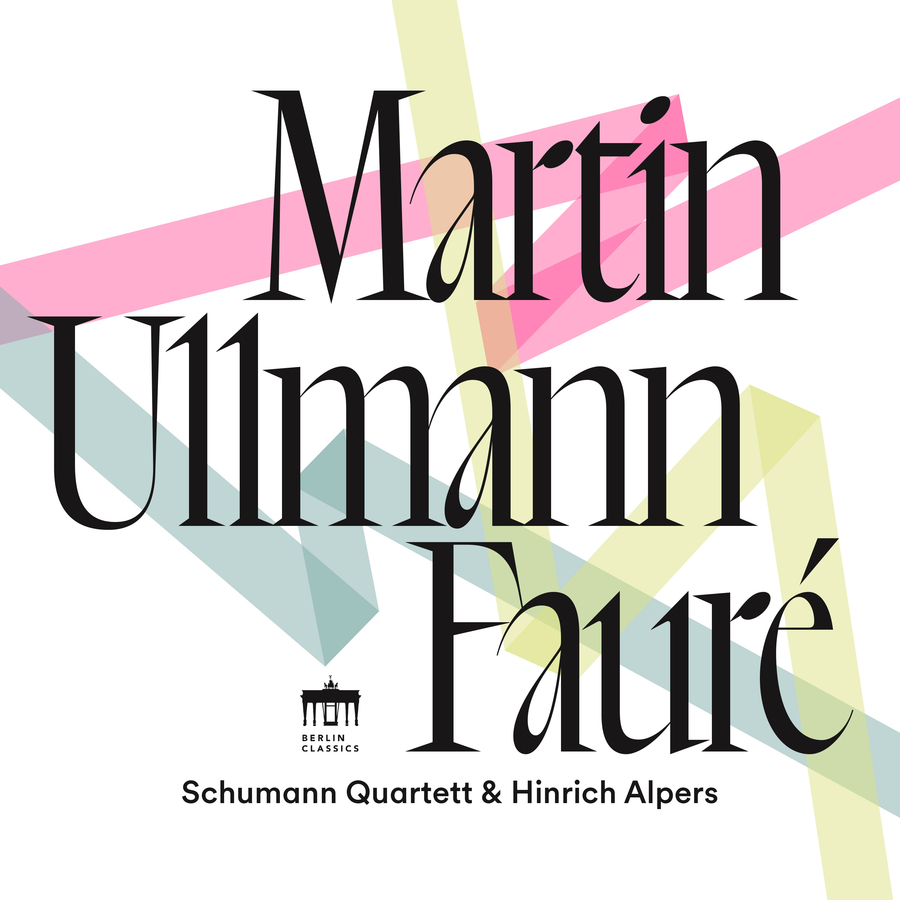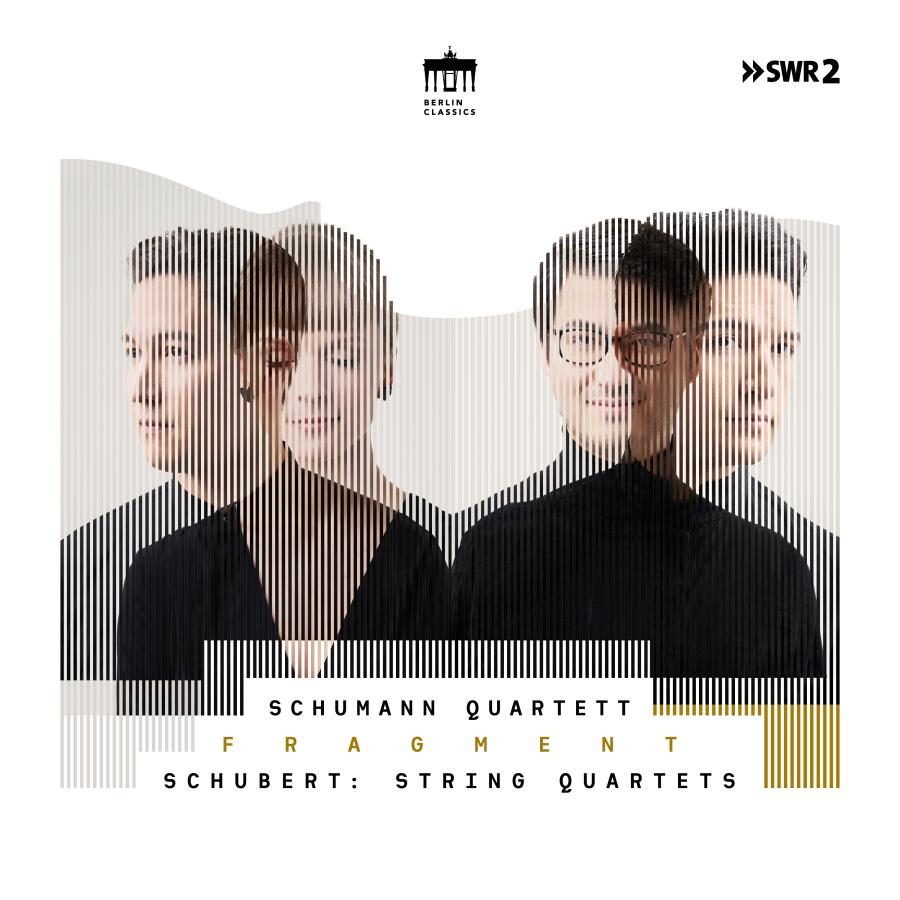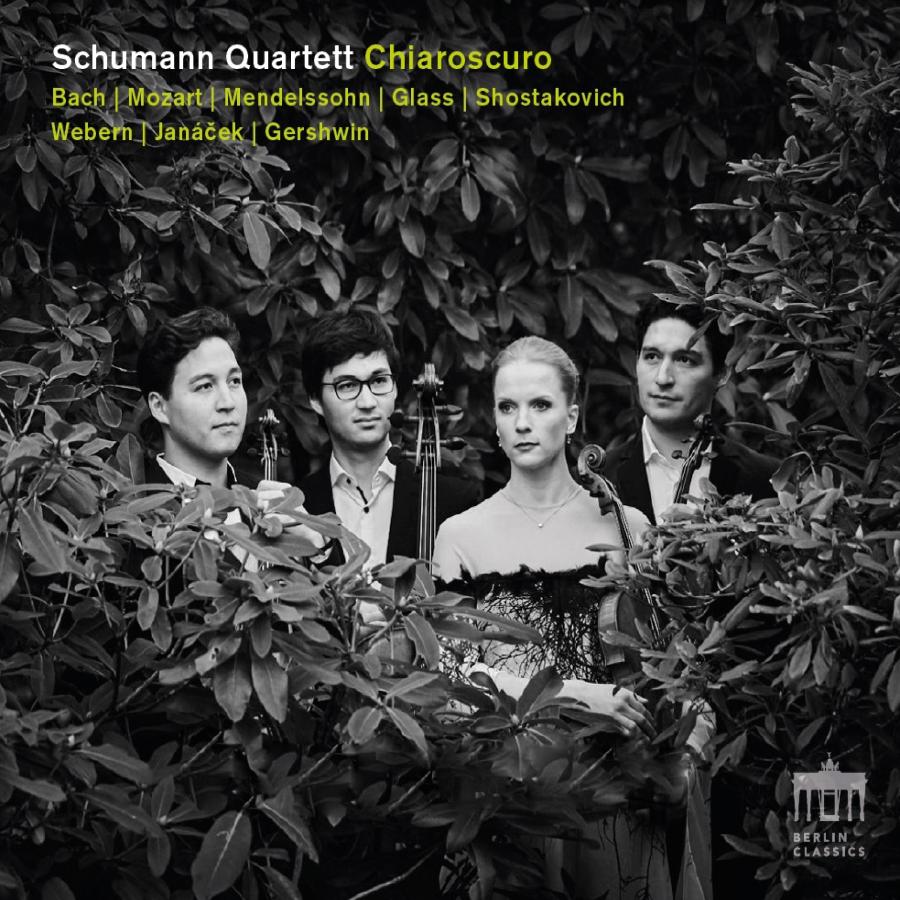Quartet Music from the Year of Crisis and Awakening 1923
The Schumann Quartet dedicates its latest studio production “1923” to that year in which new musical paths were sought, found or questioned and at the same time the birth of radio heralded a new age for composers and the dissemination of their works. The CD programme brings together selected quartet music by Paul Hindemith, Alban Berg, Erwin Schulhoff and Leoš Janáček.
In retrospect, the year 1923 seems Janus-faced: “Alles kaputt, alles unklar” (Everything broken, everything unclear), for example, is the title of a current show at the Hamburger Kunsthalle that shows what moved artists in the crisis year of the Weimar Republic. In 1923, Germany experienced hyperinflation, the occupation of the Ruhr region led to massive protests and the attempted Hitler coup in November shook the Republic. But in every crisis there is already the seed of a new beginning, a “now more than ever” – and this is reflected first and foremost in the arts, especially in music. Moreover, this year marked the beginning of nothing less than a new age for music, opening up unimagined possibilities for dissemination and new target groups: in 1923, the first radio programme went on the air in Germany, as it did in the Czech Republic, Austria and Switzerland. The Schumann Quartet (the brothers Erik (Vl. 1), Ken (Vl. 2) and Mark Schumann (Vc.) as well as Veit Hertenstein (Va.)) has now dedicated its new studio album “1923” to this milestone of the 20th century as part of the BR Klassik annual theme, which exclusively brings together compositions that were written or premiered in this year – or only achieved their great breakthrough.
The year 1923 is stylistically more diverse than almost any other: atonality or twelve-tone music, jazz and neo-romanticism collide here, sometimes merging into something new or even questioning each other.
At the beginning of the project was the selection of works for the string quartet, Ken Schumann recalls: “I found it fascinating what different styles were prevalent at that time. Only five years after the First World War … a very special atmosphere: we wanted to try to capture that time a little bit.
With its new album “1923 – 100 Years of Radio”, the Schumann Quartet thus delivers a sounding yearbook that is interspersed with humour, satire and the joy of experimentation, but at the same time also invites listeners to take mental rollercoaster rides. An album that could hardly be more varied and entertaining, but at no time comes across as superficial or trivial. The outstanding ensemble has been guaranteeing the latter since its founding in 2007, and even the recent replacement of Veit Hertenstein on the viola part (2022) has not changed anything, as the public’s approval and the music critics (recently also by Harald Eggebrecht in the “Süddeutsche”) confirm.
100 Years of Radio Schumann Quartett
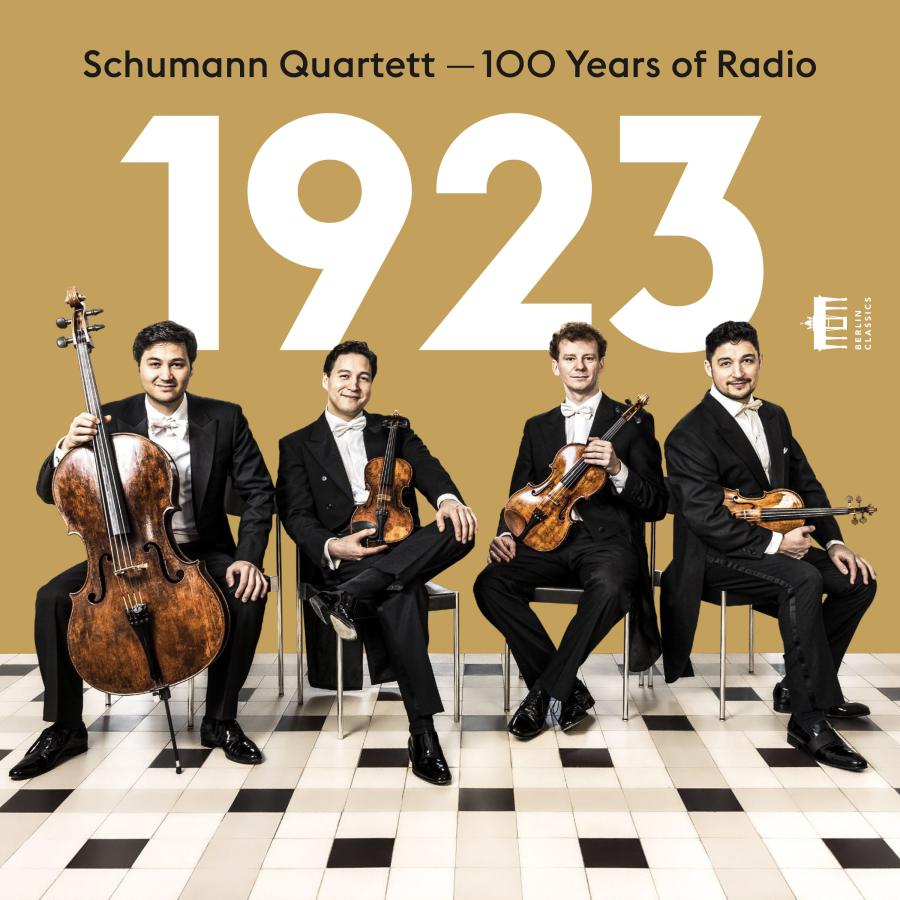
Artist
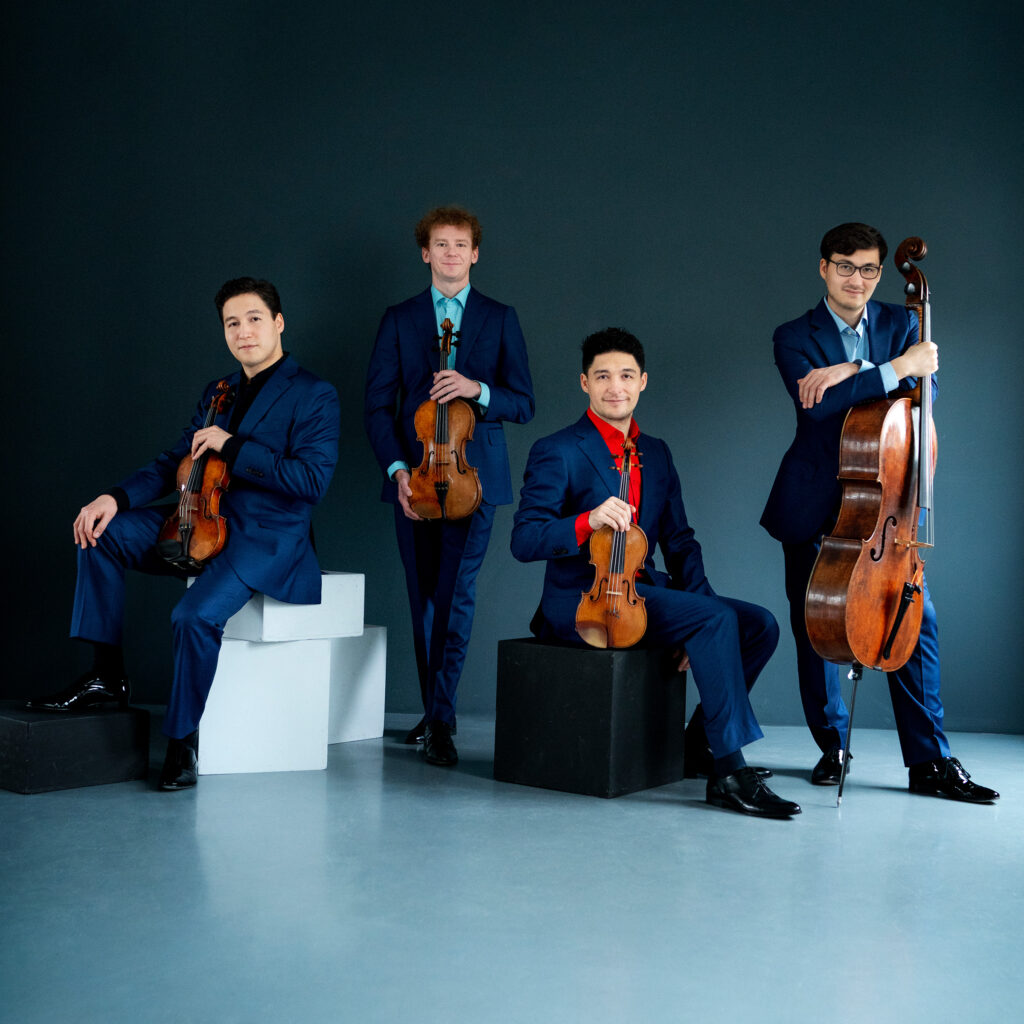
Composer





Further information
Genre
Klassik
Streichquartett
Publication date
15.09.2023
Quartet Music from the Year of Crisis and Awakening 1923
The Schumann Quartet dedicates its latest studio production "1923" to that year in which new musical paths were sought, found or questioned and at the same time the birth of radio heralded a new age for composers and the dissemination of their works. The CD programme brings together selected quartet music by Paul Hindemith, Alban Berg, Erwin Schulhoff and Leoš Janáček.
In retrospect, the year 1923 seems Janus-faced: "Alles kaputt, alles unklar" (Everything broken, everything unclear), for example, is the title of a current show at the Hamburger Kunsthalle that shows what moved artists in the crisis year of the Weimar Republic. In 1923, Germany experienced hyperinflation, the occupation of the Ruhr region led to massive protests and the attempted Hitler coup in November shook the Republic. But in every crisis there is already the seed of a new beginning, a "now more than ever" - and this is reflected first and foremost in the arts, especially in music. Moreover, this year marked the beginning of nothing less than a new age for music, opening up unimagined possibilities for dissemination and new target groups: in 1923, the first radio programme went on the air in Germany, as it did in the Czech Republic, Austria and Switzerland. The Schumann Quartet (the brothers Erik (Vl. 1), Ken (Vl. 2) and Mark Schumann (Vc.) as well as Veit Hertenstein (Va.)) has now dedicated its new studio album "1923" to this milestone of the 20th century as part of the BR Klassik annual theme, which exclusively brings together compositions that were written or premiered in this year - or only achieved their great breakthrough.
The year 1923 is stylistically more diverse than almost any other: atonality or twelve-tone music, jazz and neo-romanticism collide here, sometimes merging into something new or even questioning each other.
At the beginning of the project was the selection of works for the string quartet, Ken Schumann recalls: "I found it fascinating what different styles were prevalent at that time. Only five years after the First World War ... a very special atmosphere: we wanted to try to capture that time a little bit.
With its new album "1923 - 100 Years of Radio", the Schumann Quartet thus delivers a sounding yearbook that is interspersed with humour, satire and the joy of experimentation, but at the same time also invites listeners to take mental rollercoaster rides. An album that could hardly be more varied and entertaining, but at no time comes across as superficial or trivial. The outstanding ensemble has been guaranteeing the latter since its founding in 2007, and even the recent replacement of Veit Hertenstein on the viola part (2022) has not changed anything, as the public's approval and the music critics (recently also by Harald Eggebrecht in the "Süddeutsche") confirm.
Tracklist - These are the tracks you will hear on the album
100 Years of Radio
Schumann Quartett
1
I. Adagio Con Moto
2
II. Con Moto
3
III. Con Moto — Vivace — Andante — Tempo Ⅰ
4
IV. Con Moto
5
"Movement" for Steingquartet
6
I. Armeemarsch 606 ("Der Hohefürstenberger"): Trio
7
II. Overtüre Zu "Wasserdichter Und Vogelbauer": Maestoso — Allegro/Presto
8
III. Ein Abend an Der Donauquelle: Intermezzo Für Zwei Entfernte Trompeten
9
IV. Löwenzähnchen an Baches Rand Konzertwalzer: 1. — 2. — 3.
10
V. Die Beiden Lustigen Mistfinken: Charakterstück, Solo Für Zwei Piccoloflöten — Trio
11
VI. Alte Karbonaden: Marsch — Trio
12
I. Langsam
13
II. Mäßige Viertel
14
I. Alla Valse Viennese (Allegro)
15
II. Alla Serenata (Allegretto Con Moto)
16
III. Alla Czeca (Molto Allegro)
17
IV. Alla Tango Milonga (Andante)
18
V. Alla Tarantella (Prestissimo Con Fuoco)
19
The Charleston (Arr. For String Quartet by Kenneth Abeling)













